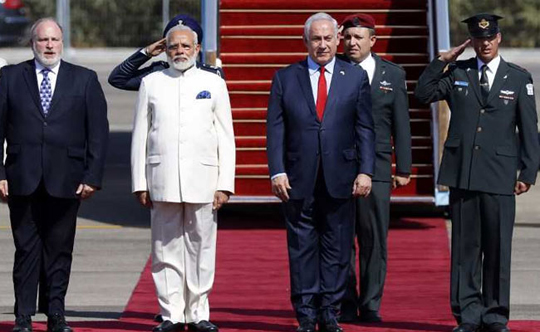Washington, Mar 8: An attendee at last week's Conservative Political Action Conference (CPAC), which also saw the participation of US President Donald Trump, has tested positive for COVID-19, the American Conservative Union (ACU) said.
The exposure occurred prior to the conference held in National Harbor, Maryland, just south of Washington D.C., Xinhua news agency quoted the ACU as saying in a statement on Saturday.
A New Jersey hospital tested the person, and the Centers for Disease Control and Prevention (CDC) confirmed the positive result, said the statement.
"The individual is under the care of medical professionals in the state of New Jersey, and has been quarantined," it said.
Trump and Vice President Mike Pence spoke at the gathering, which took place from February 26-29.
Also present at the event were a number of administration and cabinet officials, including Secretary of State Mike Pompeo, Health and Human Services Secretary Alex Azar, and newly-appointed White House Chief of Staff Mark Meadows.
White House Press Secretary Stephanie Grisham said in a statement Saturday that the White House was aware of the development.
"At this time there is no indication that either President Trump or Vice President Pence met with or were in close proximity to the attendee," Grisham said in a statement.
"The President's physician and US Secret Service have been working closely with White House Staff and various agencies to ensure every precaution is taken to keep the First Family and the entire White House Complex safe and healthy."
The news emerged as Washington D.C. and neighbouring state of Virginia respectively confirmed their first cases of COVID-19 on Saturday.
In a press conference on Saturday night, Washington D.C. Mayor Muriel Bowser said a resident in his 50s showed symptoms of a respiratory virus in February. He was admitted to a hospital in the District on March 5.
The patient had no history of recent international travel, nor had he been exposed to anyone who was confirmed to be infected, according to Bowser.
The Mayor said D.C. health authorities were investigating the man's contact with other people before he went to the hospital.
A US Marine assigned to Fort Belvoir in Fairfax County, Virginia, tested positive on Saturday for COVID-19 and is currently being treated at Fort Belvoir Community Hospital, according to a Pentagon spokesman.
"The Marine recently returned from overseas where he was on official business," tweeted Jonathan Rath Hoffman, adding that Secretary of Defence Mark Esper and the White House have been briefed.
As of Saturday night, more than 420 cases of COVID-19 were reported in the US with 17 deaths, according to the Center for Systems Science and Engineering at Johns Hopkins University.








Comments
Add new comment